Credit to the Artist: Aya Tarek, Beauty Queen of Azarita
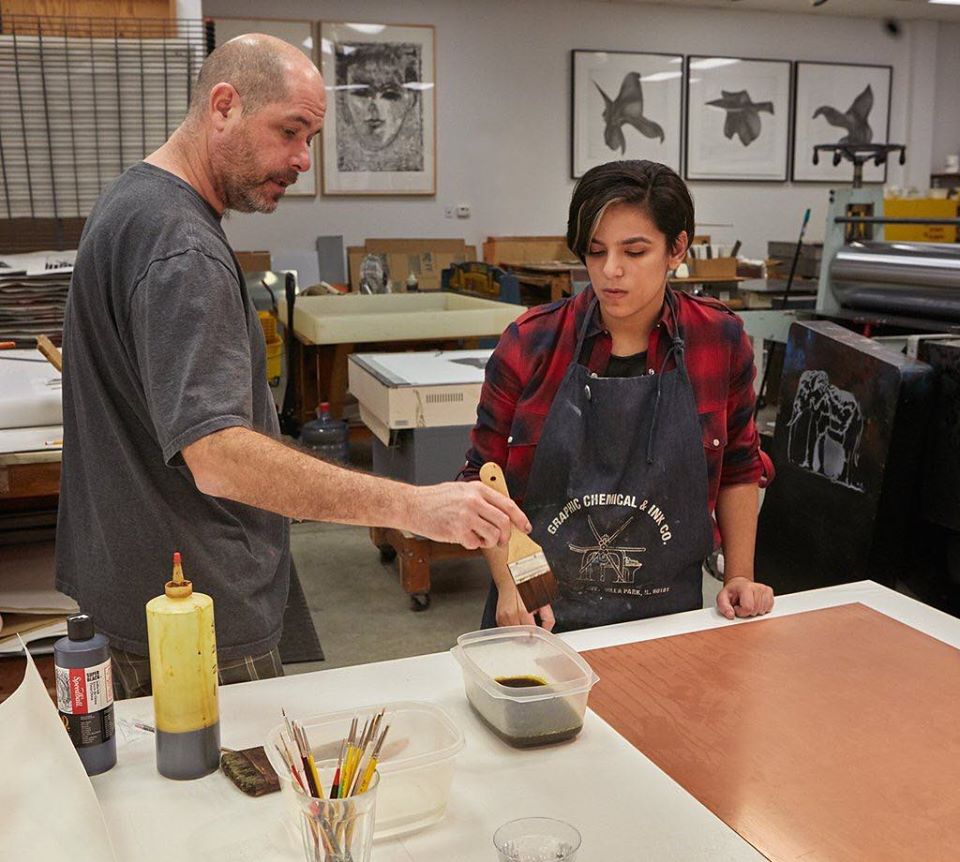
Hanging out often at her grandfather’s atelier as a child, Aya Tarek caught the talent and began to delve into the universe of art in search of her true belonging. Tarek’s grandfather was a graphic designer who used to design movie posters and banners back in the days; “I had a very cool grandfather, my parents were by-the-book employees, I wanted something more than that.”
Career
Her grandfather passed away right before she applied in Fine Arts back in Alexandria, where the curricula, professors and everything was so outdated – which agonized her so much. So she took over her grandfather’s atelier and started trying out new techniques in street art since it was on the rise at that time. Later, in 2012, she participated in “White Wall” a project based in Beirut, Lebanon.
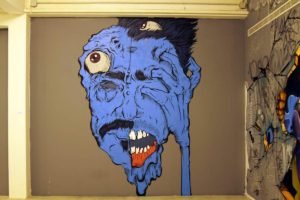
In 2015, she worked for Oshtoora, a a festival of music and arts.
Her latest contribution was for a project in Brazil entitled “Afreaka” in Sao Paulo, last April.
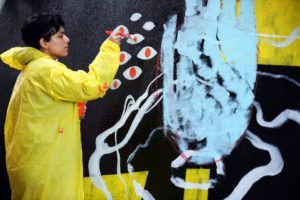
Revolution
Tarek’s journey started before the revolution, Alexandrian walls were introduced to her art in 2008. She got featured in Khaled Abo El-Naga’s movie “Microphone” portraying the art scene in Alexandria.
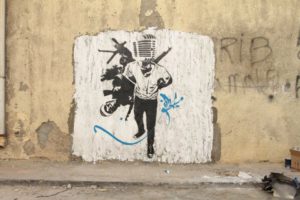
She participated in the revolution as a protester, “I’m not going to lie to you, it didn’t affect my art; revolutions are not as romantic as the movies show.” It was such a highly spiritual event to her, but it did not have a direct impact on her art. “Of course, the post-revolutionary events screwed us all over, affecting how we think and how I deal with things. But I can’t tell you that the revolution had done stuff and turnovers to my art.”
Philosophy
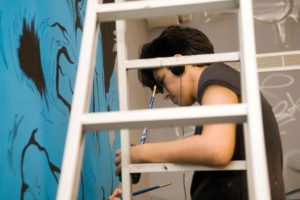
“I’m not really topic-oriented, I’m more about style. I hate to choose a topic and stick to it.”
Tarek’s philosophy is purely artistic. She doesn’t plant any subliminal messages in her artwork, nothing political. “I’m not going to turn into a machine and repeat my art in one direction all along to serve one message.” She doesn’t want to lecture the recipient, she’d rather leave them create the messages they want out of her art. “It’s my my job to produce the image, and it’s your job to interpret it as you wish.”
Tarek moves around a lot, but she’s finally decided to settle in Cairo with all her art. She’s currently working on a Solo Show where she will exhibit her brand new art collection.
WE SAID THIS: Next week we’re profiling Keizer, stay tuned!
